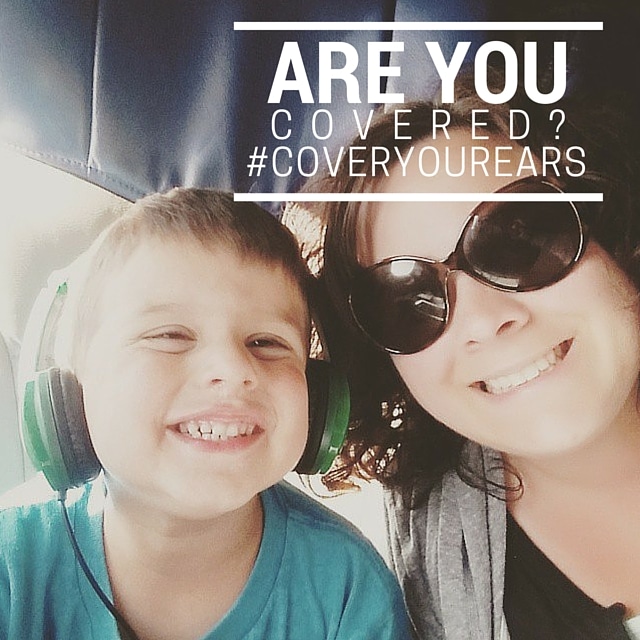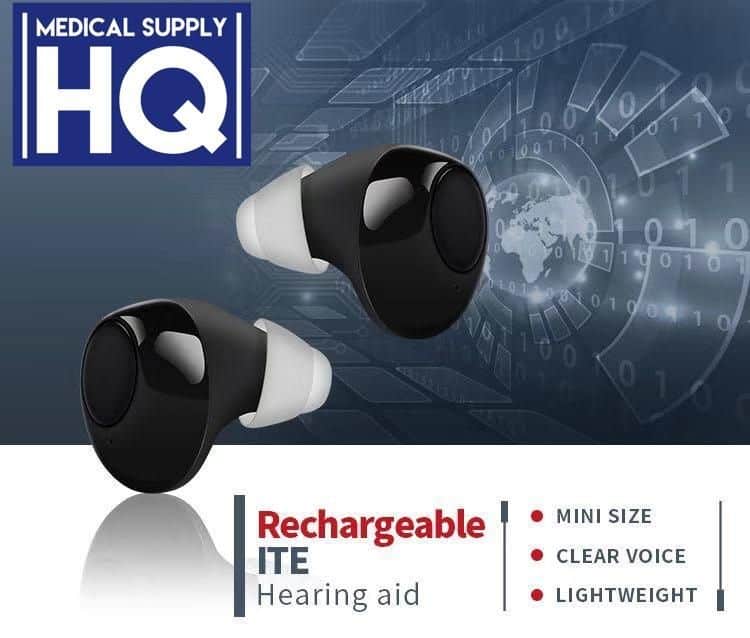Does Medicare Advantage Cover Hearing Aids
Medicare Advantage offers coverage for hearing services, and in many cases Medicare Advantage covers some of the cost of hearing aids.
Medicare Advantage is private medical insurance bundled with your original Medicare Part A or B plan, so the level of hearing aid coverage will depend on which private insurance company you have chosen for your Medicare Advantage plan.7
To find out whether your Medicare Advantage policy covers hearing aids and services, contact your insurance company at the phone number listed on your membership card and ask the customer representative, What are my hearing aid benefits?
You can also contact a Medicare representative at 1-800-MEDICARE, chat with a representative online at medicare.gov, or consult NCOAs extensive guidance on navigating your Medicare benefits.
How To Add Medicare Advantage To Your Medicare Plan
If you dont have Medicare Advantage but are interested in adding it to your Medicare plan, talk to a licensed Medicare professional to compare the different insurance plans that are available. Read the federal governments rules for Medicare representatives, so you are prepared before making any calls.
A licensed Medicare agent will help you compare benefits offered by different insurance companies, so you can determine which insurance plan has the best hearing aid coverage. The agent will also help you compare other benefits that are important to you, and calculate your monthly premiums and deductibles, so you can decide which plan best fits within your budget.
Popular Options For Affording Hearing Aids
Some of the most popular ways to afford hearing aids outside of insurance include health credit lines, loans, or even discount programs through specific hearing aid providers. Many companies offer different financing options, so you can find a hearing aid payment plan that fits your budget and financial goals.
Care Credit:
f you havent heard of CareCredit, you may be missing out on a helpful payment method. CareCredit acts as a credit card where you can spend money, but it can only be used for healthcare costs.
It is accepted by over 75,000 providers, and the best part is that it is interest-free for short-term payment plans and low-interest for longer-term plans. There are no annual fees or upfront costs, so this can be a great option if you are feeling lost as to where to get funding.
Loans:
Your next avenue may be to take out a loan. Depending on interest rates and the loan provider, the repayment methods may be quite reasonable. However, with loans comes the risk of inability to repay interest or even denial of a loan.
Applicants are required to possess a particular credit score in order to receive loans, so this can be an obstacle. Homeowners do have the ability to take out a home equity line of credit in order to purchase hearing aids.
Always be careful when taking out loans! Do not take on more risk than you are able to handle.
Affirm:
This gives you more time to save money and a much smaller up-front cost. Monthly costs can be as low as $39!
Allegro:
Recommended Reading: How To Treat An Ear Infection In Adults Naturally
Medicare Hearing Aid Coverage At Hearinglife
Many people would like it if Medicare Part B covered hearing aids. Fortunately, certain insurances policies include hearing aid benefits. We know that hearing aid insurance is confusing and we are happy to work with you to address your current policies and go through new policies if you change providers.Hearing aid insurance is important to look into, especially if you have a Medicare Advantage Plan that may include hearing benefits not included in regular Medicare. In some instances Medicaid may cover hearing healthcare. As a reminder, if you are using an insurance benefit, a Managed Care, or Federal reimbursement you cannot combine them with any of our promotional offers, gifts or any discounts. Please call us at 888-379-7214 to discuss your insurance coverage.
Does Medicare Cover Hearing Exams

Medicare Part B covers part of the cost of a diagnostic hearing and balance exam if your doctor orders it to determine if you need medical treatment. You will still need to pay the Part B deductible plus 20% of the approved Medicare cost, and there may be other charges, especially if youre being seen in a hospital setting.5
Read Also: What Sizes Do Hearing Aid Domes Come In
Hearing Aids And Veteran Affairs
If you are a veteran in the United States, there are options to receive hearing aids. If you are a veteran with the Veteran Health Administration benefits, then you are eligible to receive hearing health care. According to the Office of Rehabilitation Services, this can include, visiting an audiologist, hearing screenings, diagnostic hearing evaluations, hearing aid fittings, and aural rehabilitation.
Read more: Phonak Hearing aids for Veterans
How To Find Out If Your Insurance Covers Hearing Aids
Hearing aids can be costly, but not all insurance providers cover the cost of hearing aids or exams. To find out if your insurance covers hearing aids, check with your insurance provider or you can check if your state is mandated to provide hearing aid coverage for adults and children. You can contact your health-care provider and get in touch with member services for more information about insurance coverage for hearing aids.
You may have a few additional questions about whether your insurance coverage covers partial costs, exams, or hearing aids. As part of your research, be sure to find out if there are providers in your area or if your health plan offers a separate benefit or allowance for hearing aids.
Its also a good idea to look into the requirements for age-related hearing loss or other criteria to qualify for certain types of coverage. Some benefit periods may also vary. You should also check the hearing aids duration and whether regular checkups are covered. Finally, check with your insurance provider to see what their benefit amounts allocate, since there are specific benefit caps or maximum amounts that the provider may cover.
Also Check: How To Use Breastmilk For Ear Infection
Hearing Loss And Insurance
Most people that suffer from hearing loss will make an insurance claim at some point in their lives.
According to the Centers for Disease Control and Prevention, roughly 37 million people suffer from hearing loss. The high cost of hearing aids and the need for replacement every few years also make insurance companies less likely to make any money.
However, leaving your hearing problem untreated, or trying to treat it yourself, can often be more expensive than coughing up some money for a hearing aid. If left untreated, hearing loss can lead to many difficulties late in life, including an increased risk of dementia, Alzheimers, and a steep cognitive decline.
Insurance Coverage Varies By Plan
To figure out whether your health insurance can cover your hearing aids, you need to look at your plan. The majority of plans come with a toll-free number for beneficiaries on the insurance card. Your health plan may state a specified amount of money for the cost of the aids. This money could be spent on the entire hearing aid purchase, with the benefit being renewable after a few years.
The plan may also offer you an allowance for hearing aids if you buy them from a contracted vendor. The allowance could be subtracted from the total cost of the purchase. In some cases, health plans have discounts negotiated with the contracted provider. And that means you can only enjoy the discount if you buy your device from the specified provider.
Another fact is that every individuals health plan may be different, so hearing aid coverage could vary from plan to plan geographically.
Don’t Miss: What Happens If Hearing Aids Get Wet
Why Dont Insurance Companies Cover Hearing Aids
Tens of millions of Americans have hearing loss, and as the population ages, that number could rise. Unfortunately, most people who could benefit from hearing aids dont have them, in part because most insurance companies dont cover them. It is important to understand why these incredibly essential devices arent included in plans, so we can take steps to try and make it easier for people to get the help they need to improve the quality of their lives.
Why Hearing Aids Should Be Covered By Health Insurance
One of the biggest complaints that both deaf and hard of hearing people share is the high cost of hearing aids. Hearing-impaired people whose hearing losses are not severe enough for cochlear implants must use hearing aids. The problem is, hearing aids are not usually covered by health insurance plans while cochlear implants are.
A cochlear implant is considered a prosthesis by private insurance companies, but hearing aids are not. For example, Aetna’s policy number 0013 says “Aetna considers uniaural or binaural cochlear implantation a medically necessary prosthetic for adults aged 18 years and older” when meeting certain criteria for hearing loss. At the same time, their website notes that most Aetna benefit plans exlude coverage of hearing aids.
Medicare also does not cover hearing aids .
Also Check: What Is The Importance Of Sign Language
Why Doesnt Insurance Cover Hearing Aids
by Amy Swain Hearing Center | Apr 21, 2017 | Articles |
In the past, most insurance companies have not covered even a small portion of the cost of hearing aids. I believe this is because in the past hearing aids were not considered a medical necessity. Hearing aids were also initially sold by a door to door salesman who did not have the respect from doctors that audiologists are now gaining in the health field.
Doctors are finally realizing that an untreated hearing loss can lead to more health issues than they once thought. Many studies are showing that if someone has a hearing loss and chooses to not wear a hearing aid that they are much more likely to fall, become depressed or anxious and even decline cognitively. Not being able to hear well increases the stress on our brains and has been shown in studies to have a direct impact on our overall health and this can result in the increased costs of health care, especially in the elderly population.
So why dont insurance companies help pay for hearing aids? I am happy to say that is changing now as many Medicare supplements are starting to cover a small portion of the cost of hearing aids. For example, Blue Cross and Blue Shield of Minnesotas Platinum Blue Medicare Supplement covers $450 a year for hearing aids and batteries. Other supplements like Medica and UCare also offer a stipend of sorts to help Medicare recipients get help in the purchase of hearing instruments.
AUSTIN LOCATION
Charitable And Assistance Programs For Hearing Aid Coverage

Fortunately, there are quite a few organizations, nonprofits, or other financial assistance and charitable groups that will provide free, discounted, or low-cost hearing aids depending on eligibility and specific criteria.
The Better Hearing Institute has compiled a helpful list of organizations that offer financial assistance and coverage for hearing aids. Organizations include the Air Force Aid Society, Communications for the Deaf and Hard of Hearing, and more. Organizations listed in the guide are geared toward low-income individuals and also provide state eligibility requirements.
Recommended Reading: How Long Do Nhs Hearing Aids Last
Your Questions For Our Insurance Professionals May Include:
- Do you accept my policy/company?
- Do I have a hearing aid insurance benefits?
- Do I have a co-pay or other amount for which I’m responsible?
Please note that the insurance team focuses on benefits. Should you have questions about hearing aids, our offices or need to make an appointment, our professionals will put you in contact with the appropriate individual at HearingLife.
Our insurance team’s hours:
Why Hearing Aids Are Not Covered
One reason hearing aids are not covered is because of sheer numbers. There are more hard of hearing people than deaf people who can benefit from cochlear implants. People may lose their hearing as they age and need hearing aids. Things could change because of cochlear implant technology improvements allowing hard of hearing people to use implants.
You May Like: What Does High Frequency Hearing Loss Sound Like
What Does Original Medicare Cover
Original Medicare includes two parts. Medicare Part A is commonly referred to as hospital insurance. It pays for covered inpatient services in a hospital or skilled nursing facility . Part A also pays for hospice care. But it does not cover any inpatient services or diagnostics. This includes hearing aids for seniors and hearing tests.
Medicare Part B is also known as medical insurance. It pays for outpatient services deemed medically necessary by your provider. This includes doctor visits, lab work, durable medical equipment , a variety of preventive services and screenings, and more.
Although it doesnt cover hearing aids or routine hearing exams, Medicare Part B does cover diagnostic hearing and balance exams. These are tests ordered by your healthcare provider to determine whether you require medical treatment. Your cost is 20 percent of the Medicare-approved amount. The Part B deductible applies and, if you receive the exam as a hospital outpatient, there may also be a hospital copayment.
Original Medicare does not include prescription drug coverage. Those benefits are part of Medicare Part D.
States That Require Hearing Aids To Be Covered By Insurance
Did you know that some states actually require insurers to cover the cost of hearing aids? In fact, there are 24 states!
For the most part, these states cover hearing aid costs for children, but 5 states extend this benefit to adults as well.
Arkansas
Arkansas offers $1,400 per hearing aid every 3 years.
Connecticut
Connecticut gives $1,000 every 2 years.
Rhode Island
Rhode Island covers $700 per ear every 3 years for adults 19 and older. They offer $1500 per ear for individuals under 19.
New Hampshire
New Hampshire gives $1,500 per hearing aid every 60 months.
Read Also: Do You Need Help In Sign Language
Questions About Hearing Aid Insurance
Have questions about HearingLife and your private coverage, Medicare, Medicaid or another benefit? Please call 888-379-7214 to get answers about your individual coverage.When you speak with our insurance professionals, we will have some questions for you. Please have your insurance card ready. We will likely start with the basics:
- Your name and where you live
- Your phone number and email
- Your insurance company and policy number and group number, if applicable
- Which HearingLife location where you want to be seen
Does Advocacy Matter For Hearing Aid Coverage
One possible reason for which insurance coverage for hearing aids isnt comprehensive is that: historically, hearing loss has not been viewed as an issue with strong voices. Unlike depression and other mental health concerns, campaigns for coverage on hearing aids have not been discussed widely. It is thought that solid advocacy can play a role in revolutionizing the hearing aid healthcare industry for the better. The next few years could see transformation in the hearing aid and insurance landscape if more people begin to talk about them.
Audiologists at Natural Hearing Centers are there to attend to the needs of hearing aid patients like you. Irrespective of your condition and budget, you will find affordable hearing aid solutions to improve your hearing.
Contact Natural Hearing Centers today at 221-9156.
You May Like: How To Clean Baby Ear Piercing
Why Arent Hearing Aids Covered
Given the huge impact they could make in peoples lives, and given the number of other things that are covered by insurance, it is difficult to understand why insurance companies dont cover them. The companies themselves often state that getting hearing aids is elective, similar to having plastic surgery. Given the difficulties that people with hearing loss face, it is hard to believe that getting devices that could change their lives should be treated as elective rather than addressing a disability.
The more likely reason that insurance companies dont cover hearing aids is that they dont want to bear the cost, and dont want to pass that cost along to their policyholders. It is not likely that this is going to change soon, and it is most likely to change if Congress mandates it rather than relying on the insurance companies to make the change themselves.
My View On Hearing Aid Costs

Deaf and hard of hearing people, as well as parents of deaf and hard of hearing children, should not have to turn to charitable organizations for a basic device that is so essential to functioning. If cochlear implants are covered by insurance, hearing aids should be, too. A cochlear implant is essentially a surgically implanted hearing aid. While a cochlear implant functions differently than a hearing aid, both cochlear implants and hearing aids serve a similar purposehelping their users hear. Manufacturers have a right to recoup their research and development costs, but hearing aids need to be priced more reasonably.
You May Like: Does Dwyane Wade Know Sign Language
Legislation To Help With Hearing Aid Costs
Congress passed the Over-the-Counter Hearing Aid Act in August 2017, making hearing aids more accessible to patients with mild-to-moderate hearing loss. After the Food and Drug Administration composes updated regulations that assure the safety of these products, the OTC hearing aids will become more widely available for purchase without a doctors prescription. This legislation is a step in the right direction to help people who cannot afford to pay the high price of hearing aids, but for many people, the price will still be restrictive. The goal of the new law is to continue to reduce hearing aid prices in the future to make them accessible to more people.
You May Like: Sign Language For Poop For Baby